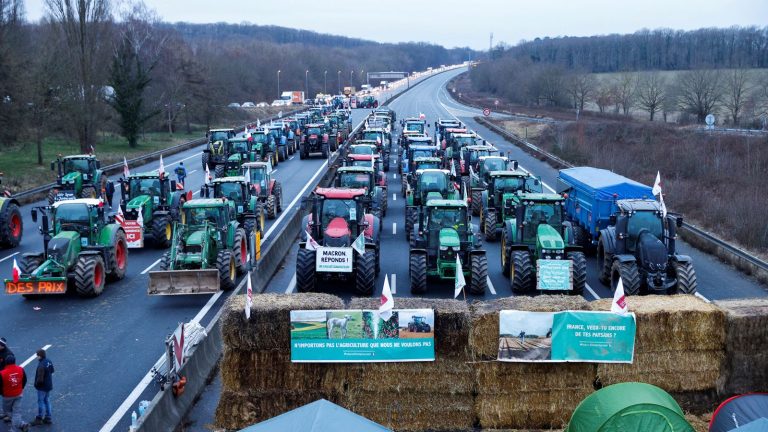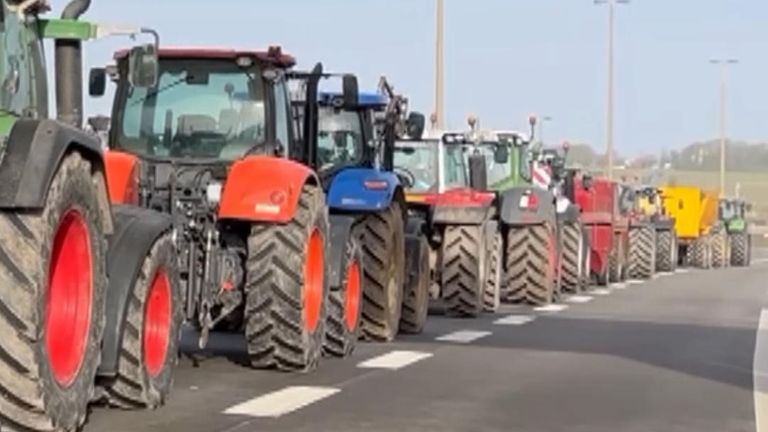The blockade being erected around Paris speaks to two things: the anger of the farmers and also their determination to see this protest through to the end.
Their complaints are long-standing, and based on the premise that politicians in Paris and Brussels simply do not understand the problems faced by farmers in the rest of the country.
And at the heart of that is money.
Farmers – in France and abroad – assert that their incomes are falling to the point that their jobs are barely sustainable.
This is partly because of the higher costs they face – the price of fertilizer has risen significantly, for example, since the start of 2018. War in UkraineWhile Ukrainian grain imports to Europe led to a decline in prices for this product.
In fact, the impact of cheaper imports is another complaint you hear at these protests.
If cheap lamb comes from abroad, for example, this inevitably reduces the price a local farmer can achieve.
For this reason, they blame free trade agreements that, they say, benefit foreign farmers at their cost.
Another frequent complaint is that the explosive growth in regulations governing agriculture, particularly environmental rules, has forced them to spend valuable time in the office when they should be out in the fields.
“It used to be a few hours a month, now it's one day a week,” says one farmer.
Tax breaks, such as one that reduced the price farmers pay for diesel, have been eliminated.
Meanwhile, farmers believe they have been ignored by the government; Their role in feeding the nation has been forgotten.
These protests are not limited to France. Germany witnessed huge demonstrations, with tractors pouring into some of the country's largest cities.
Farmers have already taken to the roads in Poland and Romania, and now there are new protests taking place daily in Belgium, Italy, Spain and elsewhere.
It is a European movement, even if most of the focus is on France.
The targets of anger are usually the same: national governments seen as failing to support their farmers, and the European Union, which bears responsibility for burdensome regulation.
Read more:
Hundreds of tractors head towards Paris in protest
French farmers block roads with tractors
Farmers say that there is a contradiction between the European Union's desire to achieve self-sufficiency in food and the routine imposed on its agricultural sector.
European Commission President Ursula von der Leyen, the architect of the EU's “Green Deal” and often cited as the problem, has few friends among the protesting farmers.
And somewhere, at the national and EU level, efforts must be made to achieve reconciliation.
For now at least, anger is mounting. It won't take much to boil.






